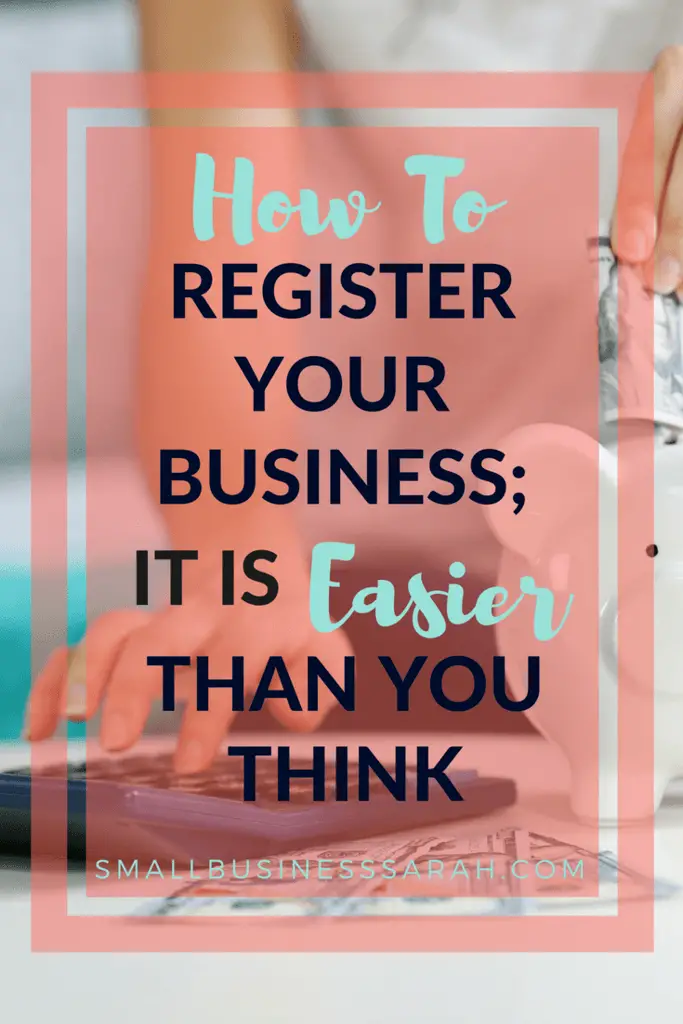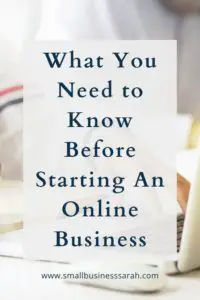I think starting a business is one of the most exciting things anyone can do! Who doesn’t want to make some side income and have more flexibility with your work and home life?
One of the not so exciting parts of starting a business is actually registering your business, and taking care of all the legal and tax nonsense. Don’t be intimidated. Put some time on your schedule to tackle this part of your business formation, and you will feel so good once it’s done. I promise!
If you’re not sure if you even have a business yet, start here. And if you haven’t picked a business structure, read this first and then come on back. I’ll be waiting!
This post may contain affiliate links. For more information, see my disclosures.
Register your Business with your State
Business formation actually occurs at the state level, not the federal level. Each state has their own forms and requirements, so determining what paperwork your state wants you to fill out is the tricky part. Once you find the correct forms, the forms themselves are usually super easy to complete. To begin the search for the correct forms, head to your state’s Department of Revenue or Department of State websites.
Although each state has different requirements for registering, there are a few common things to look for.
Let’s start with the forms a sole proprietor might need to file.
First, there may be a general all encompassing business registration form. This form may be as simple as informing your state about what business structure you selected and the date you first began operations.
Second, most businesses will need to file a Doing Business As (DBA), or Fictitious Name form with their state. A DBA should be filed for every name under which you conduct business. For example, as a sole proprietor you are the business, but you are Doing Business As the name of your blog or Etsy shop.
The great thing about DBA’s is that if you start a second blog or launch another branch of your business, you don’t need to set up a completely separate business. Simply file an additional DBA for the new project or blog. For example, as a sole proprietor, I might file a DBA for my Etsy shop called ABC and file a DBA for my blog called XYZ. Both components are part of the same single overall business.
Third, if you are selling products, make sure you register for a sales tax license in your state. Many states now require you collect and remit tax on digital products as well as physical products, so make sure you determine whether or not your products are taxable in your state. The sales tax license registration may be included in some of the other paperwork you already filed, or it may be a separate form to fill out. It is very important to register for a sales tax license before you sell products, and it is very very important to remit the sales tax you collect to your state. I have heard that sales tax is audited much more frequently than federal income tax.
If you chose to structure your business as a single member LLC, you may have to file all the above plus an additional Certificate of Organization form for your LLC. The amount of additional paperwork and the cost required to form an LLC will vary by state. Some states only have a one time fee to form an LLC, while others impose a yearly fee on an LLC.
When choosing a name for your LLC, it is helpful to choose something general that can encompass any future business pursuits. You do not need to name your LLC the name of your blog or your Etsy shop. As discussed earlier, you can file multiple DBA’s to cover all the different avenues of your business. For example, you chose to name your LLC something general, 123 LLC. Then you file a DBA for your baby blanket Etsy shop – 123 LLC is Doing Business As Baby Blankets R’ Us. A year later you start a blog, so you file another DBA. This DBA says that 123 LLC is Doing Business As DIY Blog. See how a general name for your LLC makes business expansion much simpler?
The IRS does have a handy little page to point you in the right direction for registering your business with your state. You can also begin with your state’s Department of Revenue or Department of State websites.
In my experience, state websites are not that terrific at easily explaining what forms you will need to submit, but the forms themselves (once you locate them!) are not overly complicated or difficult for you to complete. You may have to dig around online to locate the correct business registration forms for your state, so set some time aside to tackle this project, and don’t get discouraged, you can do it!
Register your Business with the IRS
Having completed all the various forms required to register your business at the state level, you may begin to worry that registering your business with the IRS will be even more difficult. Surprising, it’s not! It’s actually quite easy.
Business formation happens at the state level. You will pay taxes at the federal level, but you don’t need to file extra paperwork to register at the federal level.
Run your business during the course of the year, and at the end of the year, whether you are a sole proprietorship or a single member LLC, you’ll complete your Schedule C along with your personal tax return, the 1040. At the top of Schedule C is a handy little box where you can check off that this is an initial return. Checking this box lets the IRS know that you are a new business. That’s it.
Amazingly simple, isn’t it?
What about an EIN?
Many new business owners wonder if they need an EIN (Employer Identification Number) from the IRS. An EIN is an identifying number for each business, similar to a social security number for a person.
If you are a sole proprietorship or a single member LLC, you are not required to have an EIN.
If you are a partnership, a corporation, or have employees then you must obtain an EIN.
Although sole proprietorships or single member LLCs are not required to have an EIN, you can get an EIN if you wish. As a business owner, you may come across applications or forms that require you to give your business ID. Your social security number can suffice in many of these situations in place of an EIN. If you would rather not provide your social security number then an EIN is the ticket!
As a business owner, you may also run across situations where an EIN is mandatory, such as opening wholesale accounts or signing up for an affiliate program. It can be nice to already have this completed and ready to go.
The process of getting an EIN is surprisingly easy and it’s free. The IRS has an online form that spits one out after asking a few questions about your business. If you know you’re a business, I would recommend that you go ahead and get an EIN.
And that’s it. Your business is registered and official. Well done! Now let’s go get your business recordkeeping set up.






